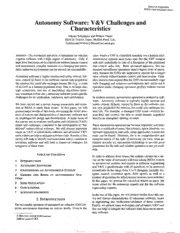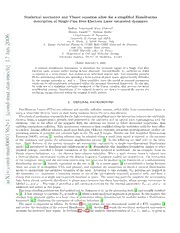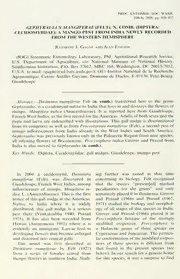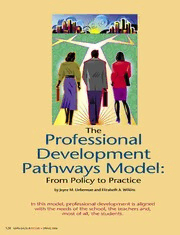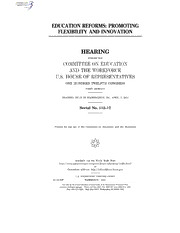
ERIC ED522594: Education Reforms: Promoting Flexibility and Innovation. Hearing before the Committee on Education and the Workforce. U.S. House of Representatives, One Hundred Twelfth Congress, First Session (April 7, 2011). Serial Number 112-17 PDF
Preview ERIC ED522594: Education Reforms: Promoting Flexibility and Innovation. Hearing before the Committee on Education and the Workforce. U.S. House of Representatives, One Hundred Twelfth Congress, First Session (April 7, 2011). Serial Number 112-17
EDUCATION REFORMS: PROMOTING FLEXIBILITY AND INNOVATION HEARING BEFORETHE COMMITTEE ON EDUCATION AND THE WORKFORCE U.S. HOUSE OF REPRESENTATIVES ONE HUNDRED TWELFTH CONGRESS FIRST SESSION HEARING HELD IN WASHINGTON, DC, APRIL 7, 2011 Serial No. 112–17 Printed for the use of the Committee on Education and the Workforce ( Available via the World Wide Web: http://www.gpoaccess.gov/congress/house/education/index.html or Committee address: http://edworkforce.house.gov U.S. GOVERNMENT PRINTING OFFICE 65–498 PDF WASHINGTON : 2011 For sale by the Superintendent of Documents, U.S. Government Printing Office Internet: bookstore.gpo.gov Phone: toll free (866) 512–1800; DC area (202) 512–1800 Fax: (202) 512–2104 Mail: Stop IDCC, Washington, DC 20402–0001 COMMITTEE ON EDUCATION AND THE WORKFORCE JOHN KLINE, Minnesota, Chairman Thomas E. Petri, Wisconsin George Miller, California, Howard P. ‘‘Buck’’ McKeon, California Senior Democratic Member Judy Biggert, Illinois Dale E. Kildee, Michigan Todd Russell Platts, Pennsylvania Donald M. Payne, New Jersey Joe Wilson, South Carolina Robert E. Andrews, New Jersey Virginia Foxx, North Carolina Robert C. ‘‘Bobby’’ Scott, Virginia Duncan Hunter, California Lynn C. Woolsey, California David P. Roe, Tennessee Rube´n Hinojosa, Texas Glenn Thompson, Pennsylvania Carolyn McCarthy, New York Tim Walberg, Michigan John F. Tierney, Massachusetts Scott DesJarlais, Tennessee Dennis J. Kucinich, Ohio Richard L. Hanna, New York David Wu, Oregon Todd Rokita, Indiana Rush D. Holt, New Jersey Larry Bucshon, Indiana Susan A. Davis, California Trey Gowdy, South Carolina Rau´l M. Grijalva, Arizona Lou Barletta, Pennsylvania Timothy H. Bishop, New York Kristi L. Noem, South Dakota David Loebsack, Iowa Martha Roby, Alabama Mazie K. Hirono, Hawaii Joseph J. Heck, Nevada Dennis A. Ross, Florida Mike Kelly, Pennsylvania [Vacant] Barrett Karr, Staff Director Jody Calemine, Minority Staff Director (II) C O N T E N T S Page Hearing held on April 7, 2011 ................................................................................ 1 Statement of Members: Bucshon, Hon. Larry, a Representative in Congress from the State of Indiana, submission for the record: Florida’s McKay Scholarship Program report, April 2008 ..................... 51 Kline, Hon. John, Chairman, Committee on Education and the Workforce 1 Prepared statement of ............................................................................... 4 Miller, Hon. George, senior Democratic member, Committee on Education and the Workforce ......................................................................................... 21 Prepared statement of ............................................................................... 22 Statement of Witnesses: Amoroso, Dr. Gary M., superintendent, Lakeville Area Public Schools ...... 8 Prepared statement of ............................................................................... 9 Barresi, Janet, superintendent of public instruction, Oklahoma State De- partment of Education .................................................................................. 5 Prepared statement of ............................................................................... 6 Grier, Dr. Terry B., superintendent, Houston Independent School Dis- trict ................................................................................................................. 15 Prepared statement of ............................................................................... 17 Additional submission: ‘‘School Meal Standards’’ ................................... 19 Maqubela, Yohance C., chief operating officer, Howard University Middle School of Mathematics and Science ............................................................. 10 Prepared statement of ............................................................................... 13 (III) EDUCATION REFORMS: PROMOTING FLEXIBILITY AND INNOVATION Thursday, April 7, 2011 U.S. House of Representatives Committee on Education and the Workforce Washington, DC The committee met, pursuant to call, at 10:02 a.m., in room 2175, Rayburn House Office Building, Hon. John Kline [chairman of the committee] presiding. Present: Representatives Kline, Petri, McKeon, Biggert, Platts, Hunter, Roe, Walberg, DesJarlais, Hanna, Rokita, Bucshon, Gowdy, Barletta, Noem, Roby, Kelly, Miller, Kildee, Scott, Woolsey, Hinojosa, McCarthy, Tierney, Kucinich, Wu, Davis, and Hirono. Also present: Representative Polis. Staff present: Katherine Bathgate, Press Assistant; James Bergeron, Director of Education and Human Services Policy; Colette Beyer, Press Secretary-Education; Kirk Boyle, General Counsel; Casey Buboltz, Coalitions and Member Services Coordi- nator; Daniela Garcia, Professional Staff Member; Jimmy Hopper, Legislative Assistant; Barrett Karr, Staff Director; Brian Melnyk, Legislative Assistant; Brian Newell, Press Secretary; Alex Sollberger, Communications Director; Linda Stevens, Chief Clerk/ Assistant to the General Counsel; Alissa Strawcutter, Deputy Clerk; Brad Thomas, Senior Education Policy Advisor; Tylease Alli, Minority Hearing Clerk; Jody Calemine, Minority Staff Director; Jamie Fasteau, Minority Deputy Director of Education Policy; So- phia Kim, Minority Legislative Fellow, Education; Brian Levin, Mi- nority New Media Press Assistant; Kara Marchione, Minority Sen- ior Education Policy Advisor; Megan O’Reilly, Minority General Counsel; Helen Pajcic, Minority Education Policy Advisor; Julie Peller, Minority Deputy Staff Director; Alexandria Ruiz, Minority Administrative Assistant to Director of Education Policy; Melissa Salmanowitz, Minority Communications Director for Education; and Laura Schifter, Minority Senior Education and Disability Pol- icy Advisor. Chairman KLINE [presiding]. A quorum being present, the com- mittee will come to order. Good morning, and welcome. I would like to thank our witnesses for being with us today. I make an adminis- trative note the ranking member, Mr. Miller, is in route. And by agreement, we are going to start. I am going to drag out my open- ing statements and let him catch up as soon as he can get here. (1) 2 I think he is on the floor. And that sometimes takes some time to travel. Well, over the last several months, our committee has been ac- tively examining the current state of education in the nation. We have listened to state and local leaders who are working to improve the quality of education our children receive. Through a series of hearings, we have heard stories of both chal- lenges and opportunities facing schools. The opportunities are found in the determination of countless individuals who realize our current system is failing our children and are fighting to do some- thing about it. As a result, parents, grandparents, teachers, reform- ers and community leaders are shining a bright light on a broken system and pursuing real change that puts children first. The challenges, unfortunately, are in many ways found in an education bureaucracy resistant to the very kind of meaningful re- forms people are trying to achieve. Policymakers have over the years added layers of mandates and regulations that weigh down our nation’s schools. Every federal tax dollar spent should provide results, but we must ensure that the regulatory burdens don’t out- weigh the benefits of federal assistance. Today, the Department of Education administers 90, 90 pro- grams tied to the Elementary and Secondary Education Act and other federal laws. Virtually every program has its own application process, separate or duplicative reporting requirements and dif- ferent eligibility criteria. It is a complicated system levied on our schools, and dedicating the time and resources necessary to navi- gate this bureaucratic maze inevitably means time and resources spent outside the classroom. To give you an idea of the magnitude of the red tape confronting schools, we have even created federal programs designed to help al- leviate the myriad requirements of other federal programs. Only here. Initiatives like the state flex program and the local flex pro- gram promise relief, yet few states or school districts have signed up because of the additional paperwork these programs require or simply because these programs fail to offer the flexibility schools desperately need. Clearly, a one-size-fits-all approach doesn’t work, resulting in frustration among parents and educators and missed opportunities for students. If we are going to move forward in education, Wash- ington has to move in a new direction. States and schools should be able to set their own innovative priorities and receive maximum flexibility to advance those priorities. If a school determines greater resources are better spent on read- ing or new technologies, then it should be free to adjust its budget to reflect the reality of its classrooms. This doesn’t mean schools and states are left unaccountable for how federal dollars are spent. Indeed, taxpayers should know where their hard-earned dollars are going and whether those dollars are achieving results. However, we must not allow the need for transparency and ac- countability to become a roadblock to local innovation. I am con- fident we can provide taxpayers the accountability they deserve while also offering schools the flexibility they need to help students succeed. 3 That is why your testimony today is so important. This is our first of many opportunities to consider specific reforms to help fix what is broken in current law. Your personal experiences in your local communities will help us to strike the proper balance between serving the interests of students and the concerns of the taxpayers. As we have learned, education is critical to the strength of our workforce and the future success of our children. I look forward to working with you to help ensure every child has within their reach a quality education. And let me say at this point, I would yield to Mr. Miller. As I pointed out earlier, he is en-route. So let me just continue here with some formalities and say pursuant to committee Rule 7-C, all committee members will be permitted to submit written statements to be included in the permanent hearing record. And without objec- tion, the hearing record will remain open for 14 days to allow state- ments, questions for the record and other extraneous material ref- erenced during the hearing to be submitted in the official hearing record. I will take this opportunity now to introduce our distinguished panel of witnesses. Dr. Janet Barresi was sworn in as Oklahoma’s state superintendent of public instruction on January 10, 2011. After working in the Harrah and Norman public school systems as a speech pathologist, Dr. Barresi served as a dentist for 24 years, earning the Thomas Jefferson Citizenship Award for active commu- nity service. In 1996, she returned to the field of education as a super- intendent of Independence Charter Middle School, Oklahoma’s first charter school. She was also asked to start Harding Charter Pre- paratory High School, where she served as board president. Dr. Gary Amoroso was named superintendent of the Lakeville Area Public Schools in the fall of 2001. Dr. Amoroso began his ca- reer in 1977 as a social studies teacher in Waukesha, Wisconsin School District. Gary, I didn’t know you came from Wisconsin. I have got two confessions here. Gary is my superintendent in Lakeville, Minnesota. He served as assistant principal, principal, director of educational services and superintendent in various Wis- consin school districts before relocating, wisely, to Lakeville, Min- nesota. Dr. Amoroso will become the new executive director of the Minnesota Association of School Administrators in July. And we wish you great success in that change. Mr. Yohance Maqubela serves as the chief operating officer of the Howard University Middle School of Mathematics and Science. Prior to joining the school, Mr. Maqubela was managing director of the Courtland Business Development Group, a boutique economic development firm based in New York City. He also served as the youngest executive director in the history of the Interracial Council for Business Opportunity, New York City’s oldest non-profit eco- nomic development firm. And Dr. Terry Grier became the Houston Independent School District superintendent of schools in 2009. Before coming to Hous- ton, Dr. Grier served as a superintendent of the San Diego Unified School District for 18 months and superintendent of the Guilford County Schools in Greensboro, North Carolina for almost 8 years. 4 Dr. Grier is especially well-regarded for his work in reducing high school dropout rates with innovative programs for at-risk students. Welcome to you all. And it is indeed a distinguished panel of ex- perts. We are looking forward to your testimony. I will remind you that you have a little black box there in front of you. It is a light system. When you start your testimony, a green light will come on, indicating that you have 5 minutes for your testimony. After 4 min- utes, the yellow light will come on. And after 5 minutes, a red light. And I would ask you to start to wrap up your testimony if you have not already gotten to that point by the time the red light—red light comes on. And again—pardon me? Okay. And we are having continuing dis- cussions here. In keeping with the aforementioned plan, Mr. Miller will make his opening remarks following the testimony of the wit- nesses. So, Dr. Barresi, you are recognized. [The statement of Mr. Kline follows:] Prepared Statement of Hon. John Kline, Chairman, Committee on Education and the Workforce Good morning and welcome. I’d like to thank our witnesses for being with us today. Over the last several months, our committee has been actively examining the cur- rent state of education in the nation. We have listened to state and local leaders who are working to improve the quality of education our children receive. Through a series of hearings, we have heard stories of both challenges and opportunities fac- ing schools. The opportunities are found in the determination of countless individuals who re- alize our current system is failing our children and are fighting to do something about it. As a result, parents, grandparents, teachers, reformers, and community leaders are shining a bright light on a broken system and pursuing real change that puts children first. The challenges, unfortunately, are in many ways found in an education bureauc- racy resistant to the very kind of meaningful reforms people are trying to achieve. While well-intended, policymakers have over the years added layers of mandates and regulations that weigh down our nation’s schools. Every federal tax dollar spent should provide results, but we must ensure that the regulatory burdens don’t out- weigh the benefits of federal assistance. Today, the Department of Education administers 90 programs tied to the Elemen- tary and Secondary Education Act and other federal laws. Virtually every program has its own application process, separate or duplicative reporting requirements, and different eligibility criteria. It’s a complicated system levied on our schools, and dedicating the time and re- sources necessary to navigate this bureaucratic maze inevitably means time and re- sources spent outside the classroom. To give you an idea of the magnitude of the red tape confronting schools, we have even created federal programs designed to help alleviate the myriad requirements of other federal programs. Initiatives like the State Flex Program and the Local-Flex Program promise relief, yet few states or school districts have signed up because of the additional paperwork these programs require, or simply because these programs fail to offer the flexibility schools desperately need. Clearly a one-size-fits-all approach doesn’t work, resulting in frustration among parents and educators and missed opportunities for students. If we are going to move forward in education Washington has to move in a new direction. States and schools should be able to set their own innovative priorities and re- ceive maximum flexibility to advance those priorities. If a school determines greater resources are better spent on reading or new tech- nologies, then it should be free to adjust its budget to reflect the reality of its class- rooms. This doesn’t mean schools and states are left unaccountable for how federal dol- lars are spent. Indeed, taxpayers should know where their hard-earned dollars are going and whether those dollars are achieving results. However, we must not allow the need for transparency and accountability to become a roadblock to local innova- 5 tion. I am confident we can provide taxpayers the accountability they deserve while also offering schools the flexibility they need to help students succeed. That is why your testimony is so important. This is our first of many opportuni- ties to consider specific reforms to help fix what is broken in current law. Your per- sonal experiences in your local communities will help us strike the proper balance between serving the interests of students and the concerns of the taxpayers. As we’ve learned, education is critical to the strength of our workforce and the future success of our children. I look forward to working with you to help ensure every child has within their reach a quality education. I will now recognize my colleague George Miller, the senior Democratic member of the committee, for his opening remarks. STATEMENT OF DR. JANET BARRESI, SUPERINTENDENT OF PUBLIC INSTRUCTION, OKLAHOMA STATE DEPARTMENT OF EDUCATION Ms. BARRESI. Chairman Kline and honorable members of the committee, I am pleased to offer testimony today on education re- form and to address how I believe we can better promote flexibility and innovation. I took office in January, amid a bipartisan groundswell of support in Oklahoma for education reform. Most Oklahomans recognize we are in a crisis in education in our state. In March, we learned that nearly 43 percent of first-time fresh- men who entered Oklahoma’s public colleges in the fall of 2009 were not prepared for college. In January, results from the 2009 national assessment of educational progress showed that 72 per- cent of Oklahoma fourth graders taking the test and 75 percent of eighth graders taking the test failed below proficient in science. And research by Stanford economist, Eric Hanushek,that compared top-performing math students all over the world showed that Okla- homa ranked far down on the list near developing or struggling na- tions like Bulgaria, Chile and Thailand. These results are like a dash of cold water. We understand medi- ocre doesn’t cut it anymore. And we are taking action. Just 3 weeks ago, I launched the three R agenda, a commitment to new fundamentals for the 21st century. The new three R for our state’s future are rethink, restructure and reform. Rethink is a complete reassessment of how we are delivering education to em- power parents, children and teachers and to embrace new tools like digital learning. Restructure involves a transformation of Oklahoma State De- partment of Education. I will focus more on the third R, reform, be- cause it is the primary reason I am here today. We are now at the half-way point in our state’s annual legislative session, and significant progress has been made on a number of re- form bills. It appears we will implement a grading system for schools and school districts and annual A through F report cards, just like students receive, so that parents can determine how a school is performing without having to interpret obscure or con- fusing metrics. We will also likely end social promotion after the third grade so students aren’t entering their most critical learning years unpre- pared. And I am urging passage of legislation enacting tuition tax credits in Oklahoma to offer parents more and better choices. Under the legislation, business and individuals could qualify for tax credits for contributions to eligible scholarship-granting organi- 6 zations. And those organizations in turn would offer scholarships to qualifying families in need. But just as we embark on legislative implementation of the three R agenda, we are mindful of potential obstacles if the Federal Gov- ernment is not—is too inflexible. A few examples: Under the cur- rent implementation of No Child Left Behind, the adequate yearly progress yardstick evaluation is rudimentary and does not provide meaningful information to parents. But most importantly, it does not recognize the ultimate goal of college and career-ready status for all students facing the 21st century workplace. By contrast, Oklahoma’s new A through F school report card sys- tem will offer easy-to-understand results for parents. And it is based on a number of different measurements that incorporate gains and improvements. Another example: As Oklahoma seeks to end social promotion after the third grade, many districts would like to fund portions of this effort with federal funds. But it appears that this would not be possible currently because of federal restrictions on supplementing versus supplanting. This demonstrates the ways in which entrenched federal guide- lines present some barriers to innovative state policies. On the one hand, the U.S. Department of Education has guidelines that on the surface seem to offer states more flexibility to meet local needs. But there seems to be a disconnect between good intentions at the top level and what actually occurs in practice, such as during program audits. And let us consider the simple reform of tuition tax credits. Fed- eral law offers parents in low-performing schools the opportunity to transfer to another public school. This isn’t true choice. Oklahoma’s reforms will offer parents an array of more choices rather than only the option of transferring from one public school to another. I urge reforms that follow this same pathway by incentivizing states to provide an array of options for students. As all participating states prepare to transition to common core standards, more flexibility is also needed in the use of federal funds for professional development that would support effective in- structional practices. Additionally, broadening the scope of the des- ignation of title programs to include a wider array of subject mat- ter such as stem initiatives would help enable states to offer a more challenging curriculum. Mr. Chairman and honorable members of the committee, the bot- tom line is this: We can turn our crisis in Oklahoma into an oppor- tunity, but only if we are prepared to embrace the kind of bold re- forms that fundamentally transform our education system for the better and only if the Federal Government is prepared to work with states like ours to allow flexibility we need in order to inno- vate. Thank you. [The statement of Ms. Barresi follows:] Prepared Statement of Janet Barresi, Oklahoma State Superintendent of Public Instruction Chairman Kline and Honorable Members of the Committee on Education and the Workforce, I am pleased to offer testimony today on education reforms and to ad- dress how I believe we can better promote flexibility and innovation.
The list of books you might like

Shatter Me Complete Collection (Shatter Me; Destroy Me; Unravel Me; Fracture Me; Ignite Me)

$100m Offers

What Happened to You?

The Spanish Love Deception
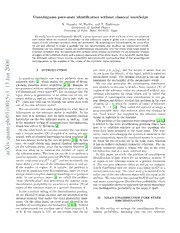
Unambiguous pure state identification without classical knowledge

云原生服务网格Istio:原理、实践、架构与源码解析(elib.cc)
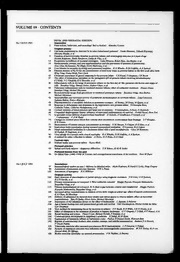
Archives of Disease in Childhood 1993: Vol 69 Table of Contents
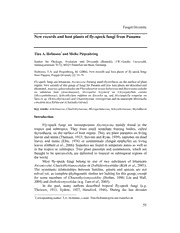
New records and host plants of fly-speck fungi from Panama
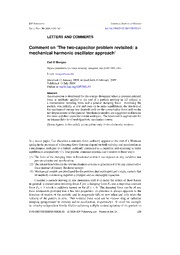
DTIC ADA550999: Comment on The Two-Capacitor Problem Revisited: A Mechanical Harmonic Oscillator Approach
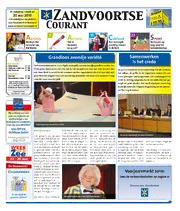
Zandvoortse Courant 2010 week 20

Bezgrješna
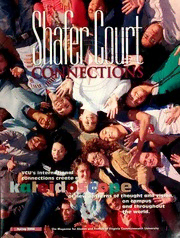
Shafer Court connections

The Philosophy of Ontological Lateness

Detroit: A Biography

Community-Acquired Pneumonia
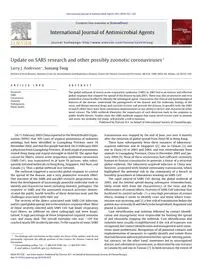
2010 Update on SARS research and other possibly zoonotic coronaviruses
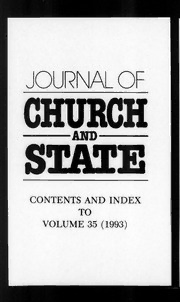
Journal of Church and State 1993: Vol 35 Table of Contents

Etext of Gems for the Young Folks by Various Authors
